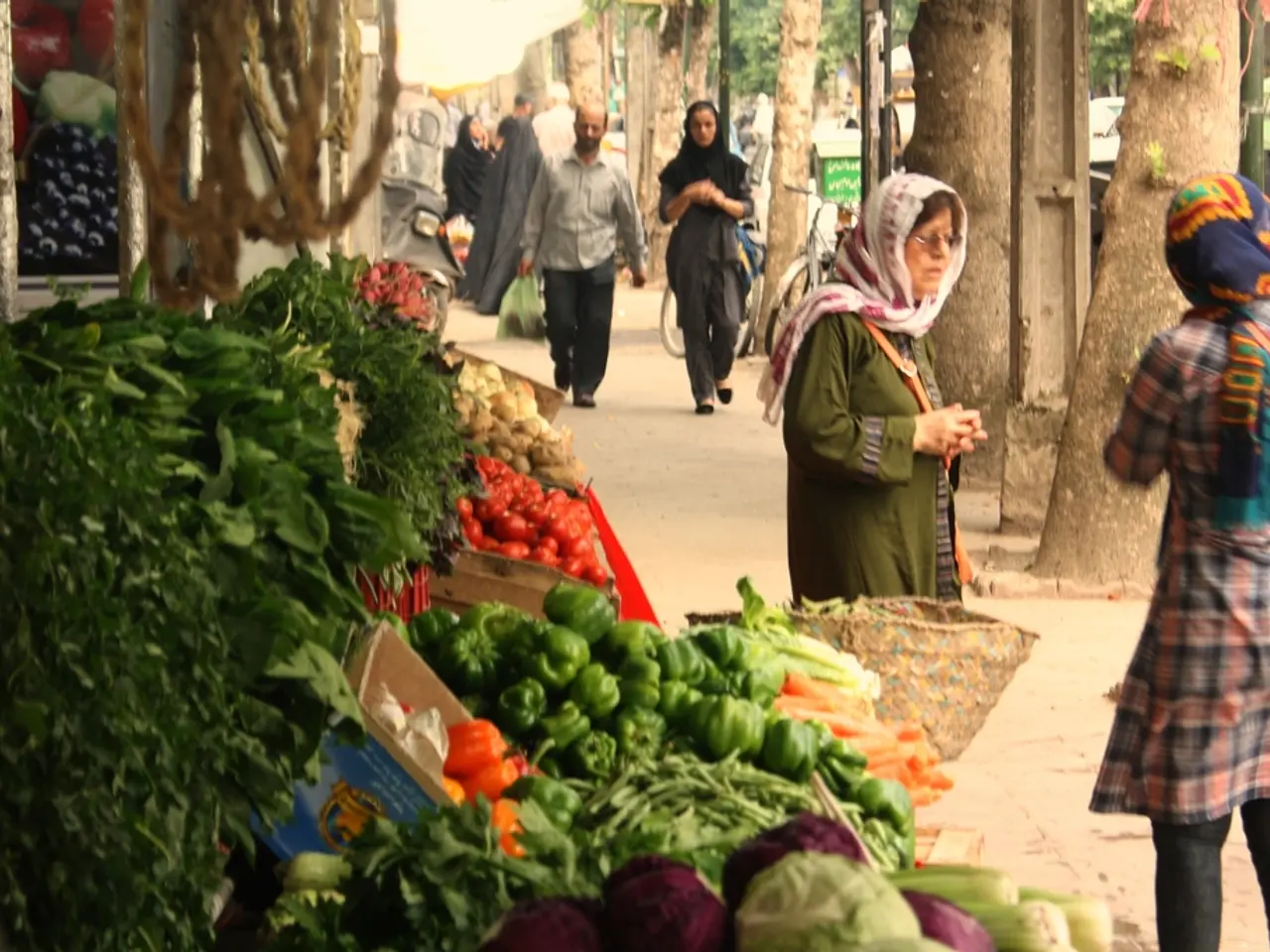City-Based Food Hub Promotes Permaculture: Homegrown Solutions for the Community
In modern urban landscapes, challenges such as limited space and regulatory hurdles often pose obstacles for community-driven food initiatives. However, with the support of local communities and governments, urban food hubs and permaculture projects are flourishing, providing numerous benefits to cities and their inhabitants.
One successful example of an urban food hub is the Kansas City Food Hub, which started in 2016 and now supplies produce to thousands of students in K-12 schools across the Kansas City area. Other notable examples include Cincinnati's Urban Greens, Philadelphia's Greensgrow Farms, and Detroit's Black Community Food Security Network.
These food hubs serve as more than just distribution centres for fresh produce. They host workshops, classes, and events that teach gardening, preserving, and cooking with fresh produce, fostering a sense of community and shared goals. Moreover, they contribute to reducing the urban heat island effect by cooling down temperatures and purifying the air.
Urban permaculture projects, such as rooftop agriculture initiatives by Earth5R, The Giving Trees Park in Detroit, and individual food forests like Nisha Agarwala’s terrace garden in Kolkata, have also made significant impacts on local communities. These projects improve food security, promote environmental sustainability, and foster social cohesion.
Earth5R's rooftop agriculture programs transform urban terraces and rooftops into productive gardens through community participation and modern technologies like hydroponics and IoT irrigation. The Giving Trees Park repurposes vacant urban lots into community green spaces with fruit and shade trees, while Nisha Agarwala's terrace garden in Kolkata showcases permaculture principles at home.
On a university scale, the University of Louisville's Garden Commons combines permaculture design, organic gardening workshops, and sustainable technologies like aquaponics and solar-powered greenhouses. These initiatives help create more resilient, sustainable, and inclusive urban ecosystems that benefit both people and the planet.
Diverse funding sources are essential for urban food hubs, as demonstrated by the Fawkner Food Bowls receiving grants from VIC Health and Moreland Council. Starting an urban food hub involves assessing needs, securing space, developing partnerships, and creating a business plan, with essential resources including funding and educational materials.
Engaging the community is crucial for the success of urban food hubs. This can be achieved through building partnerships, hosting events, and educating the public about food sovereignty and healthy eating. Urban food forests, for instance, offer free or affordable access to fresh and nutritious produce, contributing to combating food insecurity.
Flexibility is also crucial for urban food hubs to adapt to local needs. Projects like the Kansas City Food Hub and the Fawkner Food Bowls demonstrate this adaptability. Urban food hubs are changing local food systems across the United States, offering new ways to tackle food insecurity and support sustainable farming.
Engaging community members in planting, tending, and harvesting urban food forests fosters a sense of ownership and shared knowledge. Beyond just food production, urban food hubs provide environmental benefits such as mitigating the urban heat island effect and improving air quality.
As technology continues to evolve, smart irrigation, vertical farming, and better composting are becoming a big part of urban farming, demonstrating scalable models leveraging technology and collaboration. These initiatives help create more resilient, sustainable, and inclusive urban ecosystems that benefit both people and the planet.
- Urban food hubs, like the Kansas City Food Hub, not only supply produce to schools but also host workshops, fostering a sense of community and shared goals in gardening, preserving, and cooking.
- Earth5R's rooftop agriculture programs apply modern technologies, such as hydroponics and IoT irrigation, to transform urban spaces into productive gardens that promote enhances biodiversity.
- The University of Louisville's Garden Commons incorporates permaculture design, organic gardening workshops, and sustainable technologies like aquaponics and solar-powered greenhouses, contributing to lifestyle changes that prioritize health-and-wellness and environmental-science.
- Urban permaculture projects, such as Nisha Agarwala’s terrace garden in Kolkata and The Giving Trees Park in Detroit, improve biodiversity, support food security, and foster social cohesion, making significant impacts on local communities.
- Diverse funding sources are essential for urban food hubs, as exemplified by the Fawkner Food Bowls, which received grants from VIC Health and Moreland Council, to help them address the challenges of limited space and regulatory hurdles.
- Engaging community members in urban food forests not only fosters a sense of ownership and shared knowledge but also provides environmental benefits, such as mitigating the urban heat island effect and improving air quality.
- Innovations in urban farming, like smart irrigation, vertical farming, and better composting, are leveraging technology and collaboration, demonstrating scalable models for sustainability in the face of climate-change, and contributing to the regenerative design principles of health-and-wellness, fitness-and-exercise, and home-and-garden lifestyles.




